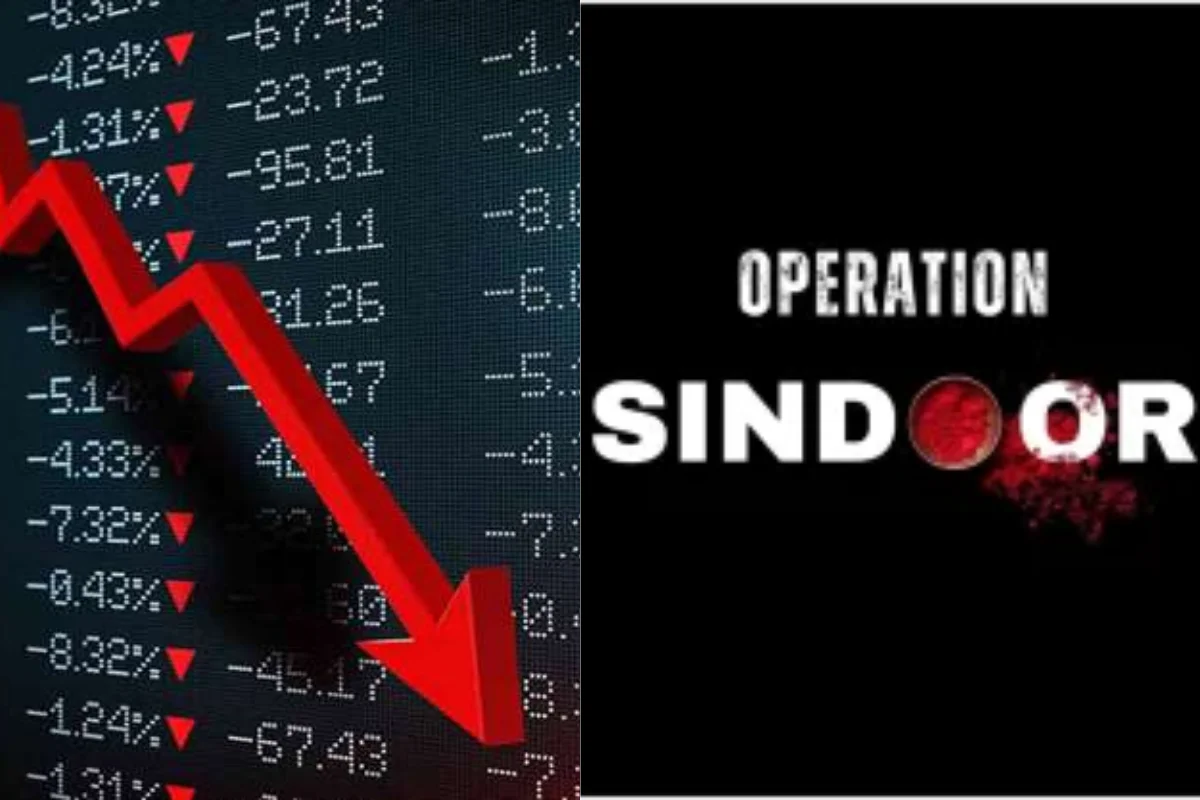Operation Sindoor Impact: Why Nifty, Sensex Are Unlikely to Be Severely Affected – Here's How Markets Have Reacted to Past India-Pakistan Tensions

Despite recent military tensions between India and Pakistan, Indian stock markets have shown resilience in the past. The Nifty 50, in particular, has experienced only modest declines during similar geopolitical events, followed by strong recoveries. Operation Sindoor
Despite recent military tensions between India and Pakistan, Indian stock markets have shown resilience in the past. The Nifty 50, in particular, has experienced only modest declines during similar geopolitical events, followed by strong recoveries. Operation Sindoor, India's coordinated precision strikes in response to the Pahalgam terror attack, has had minimal impact on the markets. This is consistent with historical trends where markets largely focus on economic fundamentals rather than short-term geopolitical tensions.
In the past, during conflicts like the Kargil War (1999), the Parliament attack (2001), the 26/11 Mumbai attacks (2008), Uri surgical strikes (2016), and the Balakot airstrikes (2019), the Nifty 50 typically saw a decline of around 5%, but it quickly rebounded, often resulting in double-digit gains within six months.
Following the recent strikes under Operation Sindoor, which targeted terrorist camps in Pakistan and Pakistan-occupied Kashmir (PoK), the Nifty and Sensex experienced only a brief dip before recovering swiftly. Financial markets remained focused on factors like capital flows and economic fundamentals, rather than reacting severely to the situation. According to an analysis by ET, this behavior mirrors past patterns, where market volatility remained contained despite geopolitical risks.
For example, historical data shows that following major confrontations, the Nifty’s average maximum decline was just 5.27%, well below correction levels. Moreover, in four out of the five major events analyzed, markets saw positive returns over the next six months, with recoveries exceeding 35% after the Kargil War and the 2008 Mumbai attacks.
Markets tend to remain stable during periods of geopolitical tension, as investors generally prioritize long-term prospects. Unless a conflict escalates into full-scale warfare or disrupts key economic indicators such as trade, inflation, currency, or capital flows, markets usually disregard short-term disturbances. "Even in the event of a substantial escalation, we believe the Nifty 50 is unlikely to correct more than 5-10%," said Anand Rathi, noting that global risk appetite remains strong. He also emphasized that investors looking to fill equity gaps in their portfolios should consider investing now.
The most significant anomaly in the past was the 2001 Parliament attack, which had far-reaching international consequences, coinciding with the aftermath of the September 11 attacks. At the time, global markets were experiencing uncertainty, and risk aversion was widespread. Similarly, the 2008 Mumbai attacks occurred during the global financial crisis, leading to pessimism in global markets.
However, incidents such as Kargil (1999) and Balakot (2019), despite the heightened tensions, did not result in long-lasting economic disruptions. These situations were viewed primarily as political or strategic events, rather than triggers for widespread economic downturns.
Resilience in Today's Market
Dr. V.K. Vijayakumar, Chief Investment Strategist at Geojit, highlighted that what stands out in Operation Sindoor is its limited, non-escalatory nature. "The market had already discounted the Indian strike," he said, adding that foreign institutional investment (FII) flows, totaling Rs 43,940 crore over the last 14 days, are providing significant support to the markets.
The current market environment is also different from past conflicts. Domestic investors are becoming more sophisticated, while Indian institutions are holding substantial cash reserves. Foreign Institutional Investors (FIIs), traditionally cautious during geopolitical crises, are now showing interest in Indian large-cap stocks, seeking growth potential in a global market that is relatively stagnant.
"India's macroeconomic fundamentals remain strong," observed Devarsh Vakil, Head of Prime Research at HDFC Securities. "Cash-rich mutual funds and consistent FII buying are helping shield our markets from any short-term shocks."
In summary, the market is unlikely to experience any significant disruptions unless the situation escalates into full-scale warfare or leads to severe economic consequences. Current indicators suggest that this could be a buying opportunity rather than a reason to sell, according to market experts.
)
